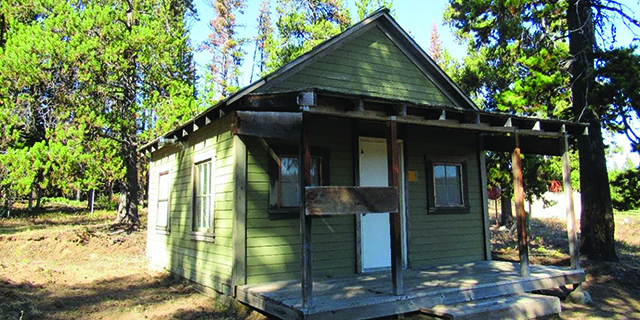MAIN STREET: Wanted: Good people to do the job
Published 5:00 pm Wednesday, March 16, 2011

- <p>Rich Wandschneider</p>
Twenty years ago Charles Wilkinson asked a Fishtrap audience for a show of Forest Service hands. Nine of the 65 people in the room said that they were full time or seasonal USFS employees.
Wilkinson, a specialist in water, natural resources and Indian law at the University of Colorado, then said the rest of us could listen in if we wanted to, but that he wanted to address the nine of them.
Trending
The gist of it was that the Forest Service was once the proudest U.S. government agency with a wonderful esprit de corps, and he was seeing a loss of this across the West. He wanted them to remember that and be proud of where they worked and what they did to help manage the nations resources.
Twenty years before that I had come to the Wallowas as an Oregon State University Extension agent, and joking about natives and old-timers aside, I never felt a bit of contempt or derision at my position or agency. In addition to agriculture and 4-H, my boss, Chuck Gavin, served as secretary to the tri-county wool pool and the planning commission, and I ran the low-income employment programs. Some summers I had 50 high school kids scattered out on Forest Service crews, at schools, hospital, and Chamber of Commerce tourism booths.
In those early years, I heard proud stories of farmers and ranchers building roads and trails on the government payroll, and of CCC men in the county Max Gorsline was, as I recall, a local straw boss from the South, Midwest, and the Umatilla Reservation who worked on roads, bridges, water troughs, ranger stations, and the Chief Joseph gravesite. That gummint money got people through tough times and contributed to county infrastructure that still stands.
More old stories had people stopped on highways and drafted onto fire crews. When the big fire hit Freezeout Saddle, ranger Ray Evans asked me to set up shop at Cloverleaf Hall and screen firefighters. We hired and shuttled locals and people drifted in from across the region to and from the fire lines. Local restaurants made the lunches, lumber yards and plumbers sold plywood and pipe for fountains and showers, and Johnny Rahn trucked toilets to the fire camps.
Forty years of saying and thinking that government is not the solution; government is the problem (President Reagan) and we live in a different world. Im not going to set blame. Maybe it was Vietnam that elicited a momentous anti-war movement, spawned a drug culture and turned people from the right and left against our national government. Maybe it is the natural rhythm of things that swings us to and from hyperactive government and hyperactive business.
Teddy Roosevelt and big government came along to popular applause to stop the robber barons. Franklin D. Roosevelt built government to fill the holes left by a rapacious Wall Street gone bust. John F. Kennedy and Lyndon Johnson used federal muscle to bring segregation to an official end. And each time those left out or behind gathered strength and came back. U.S. corporations came back to make us the worlds leading post-World War II industrial power. White southerners turned their backs on the Democratic Party and, as LBJ predicted, changed the political framework of the country.
Trending
Today, privatization is the call, and big business has stepped in to do the work of government from Chesnimnus in Oregon to the Army and State Department in the Middle East. At the height of things in Iraq, there were more private contractors than military personnel. Contractors now guard our embassies (once the proud province of the US Marine Corps) and, as we recently learned from the civilian accused of murder while claiming diplomatic immunity in Pakistan, work for the CIA. Locally, fire camps washrooms, kitchens, catering services, toilets are pulled into the county on semi trucks owned by private contractors from afar.
No matter your views on Obamacare or labor unions or Wall Street bankers, there are bad and good actors and programs across the board. The trick, it seems to me, is to admit that ours is and always has been a mixed economy we cant each build our own roads, schools, cemeteries, hospitals, and foreign policies, and we need the individual effort and brilliance of entrepreneurs from Duckett and his stoves in Imnaha to Google in cyberspace.
We need to recruit, hire, applaud and reward good people, public and private. And we each need to do the best job WE can do and hold our own heads high.









